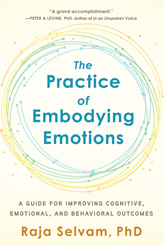Meeting the Needs of Parents Pregnant and Parenting after a Loss
We’re committed to spread information to parents that the unborn baby’s personality and development can be impacted during pregnancy. Today we have solid research to support that the mother’s stress during pregnancy may indeed impact a child’s personality. Thus, an intervention to help parents know ways to engage with their unborn baby, whether in a low risk pregnancy or one that follows a perinatal loss is an important goal. Our book outlines specific interventions to use at each stage of pregnancy that facilitates prenatal parenting to connect with the unborn baby. We hope that you find it useful resource, and we thank you for your work with bereaved families.
Truly Mindful Coloring
From an expanded sense of creativity, I suggest that all psychotherapists, whether engaged in somatic work or in traditional talk therapy, are simultaneously artists, and that all effective psychotherapy is co-creative by its very nature. The art of psychotherapy is in the precise timing and subtle choices of what gets said or how touch is delivered. From the perceptual side, psychotherapists pick up on tiny cues that allow synchronous rhythms of body, mind, heart and soul. Likewise, it is a creative act to encourage, inspire, and welcome in emergent products from the relational unconscious, such as images, symbols, metaphors, or dreams that guide, light, or unblock the path forward.
Confessions of a Clinician
I never think of myself as a writer, really. Even though there are always books and chapters and articles and case notes flying about. For me, writing is a part of a process. Take this book, for example, “Surviving the Early Years: The Importance of Early Intervention with Babies at Risk”. The title was important...a way of referencing the baby, the parents and the professional. At the same time, I wanted to express an important dynamic...the unplanned emotional-level plunge into simple survival that having a special-needs child can bring about OR – from the child’s point of view – having parents who aren’t coping well. Because I’m really a clinician at heart, I didn’t want to write another feel-good/self-help book about early parenthood reverie. The book that needed to be written, I thought, was about the grim reality of genetics, family history, chance and circumstance.
Speaking of Bodies: Embodied Therapeutic Dialogues
How do we embody words and ideas? The written word in general, and specifically in psychotherapy literature, struggles to embody. Ideas are indeed alive in the body, yet their ink form often floats, stirs thoughts and even more ideas, becomes distant from breath. I am never sure how possible it is to write in a way that maintains connection to the body, and to someone else, while still offers rigor of thought and style.
When Hurt Remains
Moshe Feldenkrais (1977), who developed the Feldenkrais method, considered walking as a series of controlled fallings. With each step we lose our balance and retrieve it. With each step we fall forward and block the fall with yet another step. Instead of perceiving falling as an undesired process, it becomes a prerequisite for moving forwards.
Movement necessitates falling.
Other Than Mother
Part of me always anticipated motherhood with warmth, accompanied by an inner mantra: 'I'll have kids by the time I'm 30'. I guess this was my personalised version of what Melanie Holmes calls the 'motherhood catechism' in her book, The Female Assumption: The Schooling of Females to assume that they will someday become mothers (Holmes, 2014: 9). It's strange to recall that even by the late 1990s it wasn't obvious, to me, at least, that child-bearing was and is a choice - the first time that I had paid attention to the pronatalism of our societal messages.
Nutrition Essentials for Mental Health
As a somatic psychotherapist, I have always integrated several body and mind methods into my clinical work and personal self-care. This set the stage for my career and passion to understand the role of culture in food, nutrition and well-being, all of which I explore in-depth in my new book, Nutrition Essentials for Mental Health.
Embodied Being
Somatics is both a science and a philosophy but it also includes holistic manual therapy as a practical application of its principles. Because it is a new inquiry into the nature of the body, it demands new eyes and bold forward thinking investigators who have freed themselves from the artificial divisions of the past.
Reflection on Writing Verbal and Non-verbal Communication in Psychotherapy
The germ of the idea for the book arose from an article on the topic of Verbal and Non-Verbal Communication in Body Psychotherapy, which was published in the journal Body, Movement and Dance in Psychotherapy. One of the blind peer reviewers commented that the article was very intense and passionate with a lot of material, and that the paragraphs were more like chapter summaries for a book. I am grateful to this anonymous person. It made me realise how much I was trying to convey in a short article. I duly reworked the article; it was published and it has consistently been in the top 10 most read articles in the journal for the last 6 years. I felt that I was on to something and that non-verbal communication had a wider appeal than the body psychotherapy community.
Reflections on The Handbook of Body Psychotherapy and Somatic Psychology
This book was composed by Gustl Marlock and myself to give a face to body psychotherapy as a whole. It is supposed to help mentally organize the scattered field and inform psychotherapists of all schools about its width and length, as well of its long history and its many methodologies. The idea is that this cannot be done by one author alone because nobody can correctly and fairly cover the contributions of so many diverse approaches. It is for this reason that the book contains the voices of 82 competent representatives of the field from many different countries, among them some of its most highly esteemed originators and teachers. They are meant to form the legs and arms, the trunk and the tail, the belly and the eyes of the now fully grown elephant named Body Psychotherapy.














